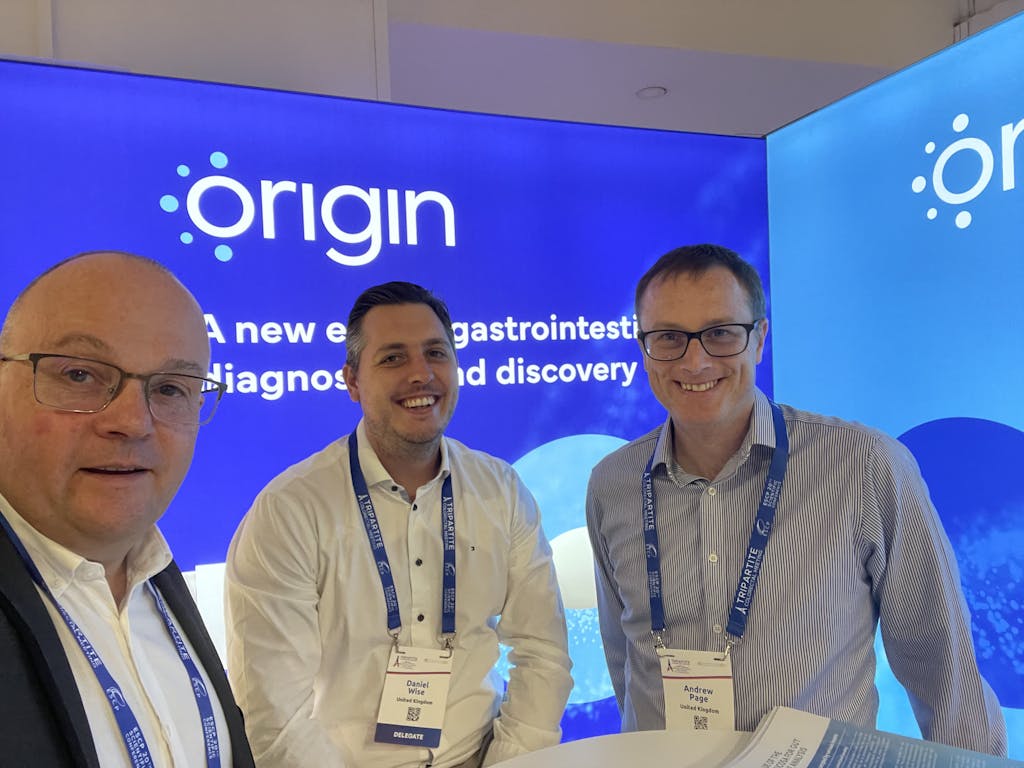Tripartite Colorectal Meeting Showcases Innovation and Collaboration in Colorectal Care
This News relates to:

Paris, September 2025 — The Palais des Congrès de Paris hosted the Tripartite Colorectal Meeting as part of the European Society of Coloproctology’s (ESCP) 20th Scientific and Annual Conference from 10–12 September. The event brought together leading surgeons, researchers, clinicians and industry innovators to discuss advances in colorectal surgery, diagnosis and patient care.
A Platform for Clinical Insight
As scientists working to develop testing solutions which address an unmet clinical need, it is integral to understand the challenges faced from the medical community's perspective.
The Tripartite conference was a fantastic opportunity to understand the nuances and magnitude of the issues facing colorectal cancer screening, diagnosis and treatment from a clinician's perspective. Taking a more cross-disciplinary approach to translational research is beneficial to all parties, and events like the Tripartite meeting allow us to ensure the scope of test development is led by clinical adopters for the most effective outcomes.
Sessions highlighted the ongoing challenges in colorectal cancer screening, diagnosis and treatment, reinforcing the importance of translational research shaped by real-world clinical experience. The cross-disciplinary approach emphasised during the conference underscored how collaboration between researchers and practitioners can drive the development of more effective, patient-centred solutions.
Origin Sciences’ Role and Reception

In contrast to strong representation from surgical technology sectors such as robotics and powered instrumentation, Origin Sciences stood out as the only “omics” company present, drawing considerable interest to our stand and our work, garnering universal recognition that traditional pathways—such as qFiT and colonoscopy—are not sufficient for the future of colorectal cancer screening.
Our innovative approach, particularly the promise of avoiding bowel preparation, attracted significant attention. This feature was consistently recognised as a universal patient benefit and echoed the feedback also received from GPs.
Emerging Collaborations and Partnerships
Several exciting potential areas for collaboration emerged from the Tripartite meeting, opportunities which highlight the positivity surrounding Origin’s solutions. As we look to advance studies, trials and partnerships in target populations and disease areas some highlights include,
- Opportunities to explore the microbiome’s role in post-ileo-anal pouch surgery patients (pouchitis) and in functional bowel concerns post-surgery.
- An invitation for Origin to put forward proposals for implementation of our Triomic study across Wales with the potential to place OricolTM into healthcare hubs, enabling increased performance analysis and health economics modelling within a devolved NHS system.
- Productive discussions around Lynch Syndrome surveillance, opening up further investigation of applications in the UK and South Africa among high-risk populations with known gene defects.
- The event also facilitated numerous valuable discussions beyond its primary focus, including topics such as IBD research, during which we demonstrated how OriColTM sampling provides a non-invasive, scalable method of accessing biologically rich material from the colorectal mucosa, making it highly valuable for advancing research and clinical monitoring in IBD ahead of the upcoming United European Gastroenterology Week (UEGW) meeting in Berlin.
Looking Ahead
The Tripartite Colorectal Meeting demonstrated the growing momentum behind innovation in colorectal care. For Origin Sciences, the conference provided not only further validation of its approach but also a foundation for new partnerships that could accelerate collaboration, adoption within the NHS and more, positioning Origin Sciences to play a pivotal role in shaping the future of colorectal diagnostics and care.
| Category | News |
|---|---|
| Date | 13 September 2025 |

